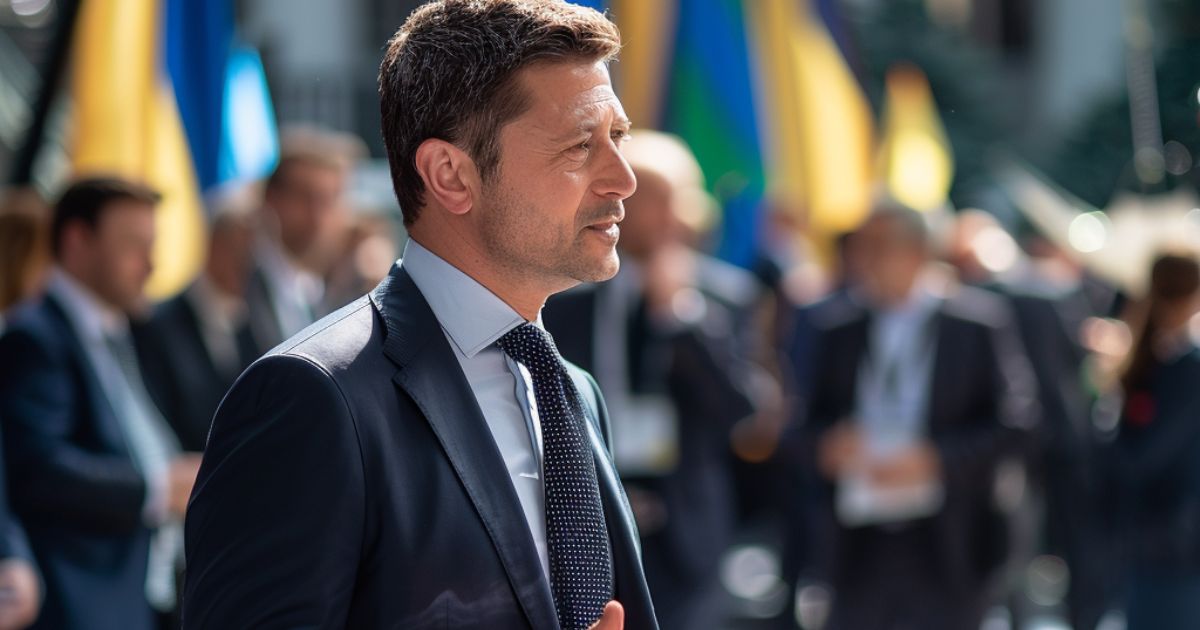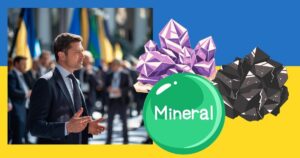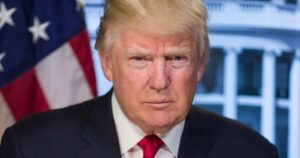Many of us in the world think that there’s no secret about the Russia-Ukraine war because of everything we can see.
Honestly, what we see is limited, and what we don’t see is unlimited. The war between Russia and Ukraine is the same.
We generally know what we know for two reasons—one from Russia’s side and another from NATO’s.
Russia accused that it had to invade Ukraine to stop NATO expansion, which means Russia doesn’t want Ukraine to become a part of NATO, which threatens its security. According to the deal, Ukraine should be a neutral country.
On the other hand, NATO’s point was that Ukraine had the right to be part of NATO as it was a sovereign country. As a result, NATO can offer membership to Ukraine. That’s not Russia’s headache.
What’s the problem?
Yes! True!
So, many of the world, like me, wonder why there is a war between Russia and Ukraine because it shouldn’t be a war at all.
Honestly, I supported Ukraine based on media reports as I was not aware of it as I was like the Middle East.
I took a week to study the Russia-Ukraine war and found significant facts that changed my ideas(One week is not enough to learn about something complex, but I will keep studying).
Honestly, there is something more than we see. There are several secret reasons behind the Russia-Ukraine war, which are slowly coming out.
These reasons are terrifying.
Secret reasons:
Where should I start?
War started a few years ago, and thousands of information and news in the world about the Russia-Ukraine war. However, my aim is to find out the seed of the war from where it sprouted.
We, who speak English, mostly follow English News, which the US and EU mostly control. So, we hardly have a chance to hear what Russian news says.
There is no way to hear from the other side as mainstream media (MSM) and even social media banned someone from talking about Russia. But Elon Musk’s owning X (formerly known as Twitter) made the news sources flow spontaneously, and we’re free to get more independent sources to hear from both sides- Russia and NATO.
Most importantly, Tucker Carlson’s recent two- and seven-minute interviews with Putin changed Russia-Ukraine narratives. The world heard what Russia was thinking and what the seed of the Russia-Ukraine war was.
Besides, this interview emboldened others to open their mouths—those who were afraid of opening their mouths before started opening their mouths boldly.
As a result, the seed of the war came out.
I hope you watched Putin’s interview with Tucker Carlson. But my point is here that what Tucker chose to 5 points of take away from his interview really set a few lights.
Source One:
Let’s see Tucker’s 5 points:
Tucker pointed out what Putin and Russia want about the Russia-Ukraine war and summarized his long interview within 5 points (See here). His points are below-
1) Putin is very “wounded” by the rejection of the West
Putin talked with Clinton about joining NATO.
2) Russia is not an expansionist power
The reason is that “Russia is the biggest landmass in the world with only 150 million people and enough natural resources, so why would they need Poland? They just want secure borders.”
3) Putin likely wants peace in Ukraine.
There was evidence of his will. There was a peace deal between Russia and Ukraine. The former prime minister of Britain, Boris Johnson, scuttled on behalf of the Biden administration and convinced Zelensky and the Ukrainian government not to enter the peace talks, and Israel revealed it.
4) Demands for Russia to relinquish Crimea are insane
Crimea was in Russian hands at the beginning of the war. So Putin would not give up Crimea. So, if you really think that Putin would give up Crimea, then you’re like a lunatic.
5) The United States’ track record with regime change is “spotty as Best.”
“We are run by nutcases,” Carlson deplored.
Carlson criticizes the U.S. leadership, specifically mentioning President Biden and Victoria Nuland, for their stance on Russia and the idea of deposing Vladimir Putin.
He expresses skepticism about the efficacy of such actions by recalling the outcomes of past U.S.U.S. interventions in Libya, Iraq, and Afghanistan, where the removal of leaders led to instability and long-term chaos.
Carlson argues that these precedents suggest a poor track record for regime change, especially considering Russia’s vast size and nuclear capabilities, implying that pursuing such a strategy needs to be revised and more dangerous.
Source Two:
Robert F. Kennedy Jr. published a video tweet on X under the headline, “Here’s the truth about the war in Ukraine.”
He presents a provocative analysis of the underlying motives behind the Russia-Ukraine conflict, suggesting that it is steeped in geopolitical and economic interests rather than the surface-level narratives commonly presented.
According to Kennedy, the war is framed as an avoidable tragedy, exacerbated by the ambitions of NATO and the vested interests of major military contractors such as Boeing, Raytheon, General Dynamics, Lockheed Martin, and Northrop Grumman. These entities, he argues, are driven by a desire to expand NATO’s footprint, compelling new member states to standardize their military hardware in line with NATO specifications, effectively securing a captive market for their products.
Kennedy’s critique extends to the financial mechanisms supporting the conflict, highlighting the substantial funds allocated by the U.S.U.S. to Ukraine, which, in his view, indirectly serve the interests of American defense manufacturers under the guise of aid.
He points out the irony in Mitch McConnell’s admission that the funds are not directly aiding Ukraine but rather flowing to the U.S.U.S. defense sector, labeling the situation as a form of money laundering. The discussion on financial aid being labeled as “loans” further emphasizes the cynicism in how economic assistance is structured, ostensibly imposing stringent austerity measures on Ukraine and mandating the privatization of state-owned assets, including its prized agricultural lands.
Kennedy delves into the historical and cultural significance of Ukraine’s farmland, dubbed the “breadbasket of Europe,” to underline the gravity of its potential loss to multinational corporations like Dupont, Cargill, and Monsanto, which he claims are owned by financial giants like BlackRock.
The narrative suggests a deliberate strategy by powerful entities to dismantle Ukraine’s economic sovereignty and exploit its resources, casting a shadow on the intentions behind the U.S.’sU.S.’s involvement and the post-war reconstruction plans led by the same financial interests.
Amidst this critique, Kennedy touches on the broader societal implications of these strategies, accusing them of fostering division and distraction within the American populace and beyond. By emphasizing the divide between political parties, racial groups, and other societal divisions, he suggests that these tactics maintain the status quo of power and control, allowing entities like BlackRock to operate with impunity.
Kennedy’s analysis raises profound questions about Ukraine’s future, the conflict’s real winners, and the overarching dynamics of power and control in global affairs.
The narrative challenges the audience to reconsider the complex interplay of military, economic, and political interests that shape international conflicts and their aftermath, calling into question the ethical and moral considerations of such engagements.
This detailed exploration into the Russia-Ukraine war and its implications provides a grim reflection on the motives and consequences of global power struggles, urging a reevaluation of the paths toward peace and stability in the international community.
Kennedy mentioned in his tweet, “In March 2022, we committed 113 Billion Dollars. Just give you an example: you can build a home for every homeless person in this country. We then committed another $24 billion, since than 2 months ago, and now President Biden’s asking for another $60 billion.”
He also mentioned what the result of the loan would be.
He also raised questions and explained what was going to happen to the land.
He said, “So, why do they call it a loan?
Because if they call it a loan, they can impose loan conditions.
And what are the loan conditions that we impose on them?
Number one, an extreme austerity program so that if you’re poor in Ukraine, you’re going to be poor forever.
Number two, most important, Ukraine has to pull all of its government-owned assets up for sale to multinational corporations, including all of its agricultural land, the biggest single asset in Europe, in Ukraine.”
He said that 30% of the land had already been sold.
He also mentioned a few articles to prove his theory.
- A.P.A.P. News: Explainer: Can Ukraine Pay for War without Wrecking Economy by David McHugh Dec.32022
- Atlantic Council: Ukraine Can Feed the World by Roman Leshchenko, March 4, 2021
- Reliefweb: War and Theft: The take of the Ukraine’s Agricultural land
So what is the point now? Because merely these above lines are not enough to prove that Putin didn’t want to invade Ukraine.
Yes! That’s true.
Source Three:
Let’s go back directly to Putin’s interview.
Tucker Carlson: But do you think at this point – as of February 2024 – he has the latitude, the freedom to speak with you or the government directly, which would clearly help his country or the world? Can he do that, do you think?
Vladimir Putin: Why not?
He considers himself head of state. He won the elections. Although we believe in Russia that the coup d’etat is the primary source of power for everything that happened after 2014, and in this sense, even today’s government is flawed.
But he considers himself the president, and he is recognized by the United States, all of Europe, and practically the rest of the world in such a capacity – why not? He can.
We negotiated with Ukraine in Istanbul, we agreed, he was aware of this. Moreover, the negotiation group leader, Mr. Arakhamia, is his last name, I believe, and he still heads the faction of the ruling party, the party of the President in the Rada. He still heads the Presidential faction in the Rada, the country’s parliament. He still sits there. He even put his preliminary signature on the document I am telling you about.
But then he publicly stated to the whole world: “We were ready to sign this document, but Mr. Johnson, then the Prime Minister of Great Britain, came and dissuaded us from doing this, saying it was better to fight Russia. They would give everything needed for us to return what was lost during the clashes with Russia. And we agreed with this proposal.” Look, his statement has been published. He said this publicly.
Can they return to this or not? The question is: do they want it or not?
Further on, the President of Ukraine issued a decree prohibiting negotiations with us. Let him cancel that decree, and that’s it. We have never refused negotiations, indeed. We hear all the time: is Russia ready? Yes, we have not refused! It was them who publicly refused. Well, let him cancel his decree and enter into negotiations. We have never refused.
And the fact that they obeyed the demand or persuasion of Mr. Johnson, the former Prime Minister of Great Britain, seems ridiculous and very sad to me. Because, as Mr. Arakhamia put it: “We could have stopped these hostilities, this war a year and a half ago already. But the British persuaded us, and we refused this.” Where is Mr. Johnson now? And the war continues.
Yes, RESPONSIBLE STATECRAFT writes on September 2, 2022, under the headline “Diplomacy Watch: Did Boris Johnson help stop a peace deal in Ukraine?“
The core point of the article was “The news highlights the impact of former British Prime Minister Boris Johnson’s efforts to stop negotiations, as journalist Branko Marcetic noted on Twitter. The decision to scuttle the deal coincided with Johnson’s April visit to Kyiv, during which he reportedly urged Ukrainian President Volodymyr Zelensky to break off talks with Russia for two key reasons: Putin cannot be negotiated with, and the West isn’t ready for the war to end.”
So, who refused the peace deal? Who instigated?
Boris?
But Tucker accused it’s not Boris. It’s actually Biden. Biden sent Boris to Kyiev as a messenger.
Boris was literally the messenger of Biden and NATO.
His first surprise visit was in April, and his second was in June 2022. His message was to win.
According to the Guardian, he said, “The only way to end this war is for Ukraine to win –.”
What’s more proof?
Source Four:
Let’s go to the E.U. now.
Clar Daly voted against E.U. aid. She posted her tween on February 20, 2023, and set the light on the truth of what Putin and Tucker are saying now.
She said, “One year on, as the war in Ukraine continues when voices everywhere should be calling for a ceasefire and peace. This resolution is driving us to the opposite direction. So, I proudly voted against it. It peddles the latest lie that this is not now about defending Ukraine. It’s about ‘Ukraine must win.’
What does that even mean?
Last year, there was a deal that would have seen Russia in return for Ukrainian non-Nato Membership, but Ukraine’s Western friends Killer Clown, Boris Johnson, and NATO rocked into town and told them to keep fighting.
The result, six cities were devasted, and four provinces legally annexed €108 billion in aid, which the people of Ukraine are going to have to pay back over decades, global food and energy crisis.
Is this winning?”
She also invited the people of Europe to come out from home and take the streets to stop the war.
Source Five:
Let’s go again to Tucker.
In his Ep. 74, he invited J.D. Vance, one of the people trying to stop $60 billion going to Ukraine.
Do you know what he said?
He said, “Never mind, 650,000 of the wealthiest Ukrainians left the country at the beginning of the war. The craziest thing is that everyone knows the war will lead Ukraine to destruction …this not U.S.U.S. interest, it’s a military contractor interest.”
Let’s return to the most reliable 21st-century news source, X.
In reply to Sprinter’s tweet, Björn S posted a clip under the caption “Michael Houdson: USA, Russia, Ukraine, Europe,” which is only 1.20 minutes long but very interesting, which answered why the US denied adding Russia to NATO.
The clip claims, “What Brzezinski wrote was that Ameirca’s spaces the possibility of not being able to rule the world unilaterally, and that would be a disaster for democracy that we cannot let any country’s economic ability to self-efficient means for potential military power and in order to prevent any country threatening America militarily, you have to prevent develop economically.
The American Nightmare, Brzezinski wrote that Russia would get together with Germany and Western Europe, creating Russian raw materials in German industry, and somehow, finally, Russia would become Westernized.
America, under Brzezinski’s strategy, would be a disaster if Russia westernized. If Europe and Russia are prosperous, then we cannot control money more, and they will have no reason to be NATO. We have to got to stop Russia, and the place to stop Russian-European conglomeration is to split at the border down at Ukraine. Let’s stay in Ukraine, what we did in Afghanistan. Let’s back its crazies. Most of them are neo-nazi’s.”
Let’s see some conclusions now.
1) What motivates Ukrainians to engage in conflict despite their longstanding existence in an impoverished nation reliant on financial aid?
2) The conflict between Russia and Ukraine does not align with the interests of the United States. It is predominantly the concern of military contractors. The general populace gains nothing from it.
3) Citizens of the European Union do not reap the same benefits as those in the US, yet they face the loss of billions in aid dollars from their earnings.
4) Russia felt compelled to intervene to protect its frontiers against the potential threat of NATO’s expansion.
5) Putin is open to negotiating a peace agreement.
6) The establishment of NATO drives a wedge between the European Union and Russia.
7) Ukraine is trapped and should consider revisiting the previously proposed peace agreement.
8) A significant number of peace-loving Americans and citizens of the European Union oppose the conflict in Ukraine.
9) Russia upholds moral standards comparable to those of the West and the European Union, emphasizing Christian values.
10) Russia does not constitute the principal adversary of America or the European Union, as it seeks security, even to the extent of considering Membership in NATO.
Note:
These insights are gathered from various sources, as my expertise does not extend to the intricacies of the Russia-Ukraine conflict. Nonetheless, I hold the conviction that the foundational narrative of this war remains constant.
With each passing day, I anticipate that an increasing number of individuals will voice their perspectives, bringing us closer to the truth.
Ultimately, I am hopeful for a cessation of hostilities, leading to a peace agreement between Russia and Ukraine in the near future. Such a resolution would not only save thousands of innocent lives but also inspire a significant movement among American and European Union citizens to put an end to this unjust war.
I kindly request not to be marginalized for my stance, as I align with neither the US or, NATO nor Russia. My aspiration is for a world of peace, envisioning harmonious relations between Russia and Ukraine.
If your perspective differs or you possess additional information, please share it in the comments below. I welcome links to facilitate further research and would greatly appreciate the opportunity to expand my understanding.
Thank you very much.







